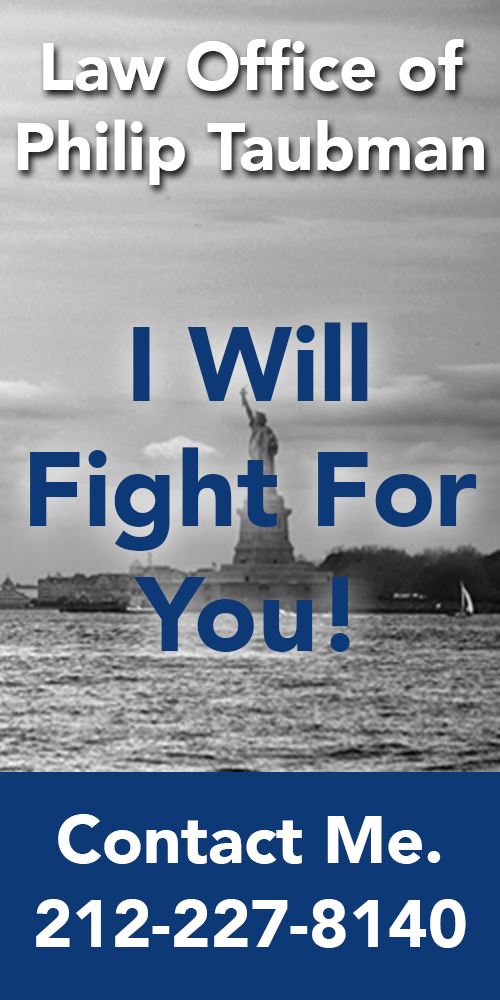Religion Discrimination FAQ

Freedom of religion is one of the founding principles of this country. New York is a diverse community where people observe various faiths and traditions. While the constitution prohibits the government from intervening upon your religious beliefs, federal, state and local laws prohibit your employer from making certain employment decisions based on your religious beliefs.
At the law office of Taubman Kimelman & Soroka, our employment law and discrimination attorneys help people of all faiths protect their right to religious freedom in the workplace. Employing federal, state and local laws, we can help you take action to protect your rights and work to hold your employer accountable for religious intolerance and to make sure that your religious beliefs are reasonably accommodated. We have worked with people of various faiths such as:
- Judaism / Orthodox Jewish
- Muslim / Islam
- Hindu
- Jehovah’s Witness
- Christian
- Catholic
- Atheist
- Agnostic
- Wicken
What is the definition of religion?
- Federal, state and local laws define religion broadly and protect all employees’ sincerely held beliefs. This includes the beliefs or practices that may be recognized by only a small amount of individuals.
- Religious observances and practices can include attending worship services, dress codes, praying, dietary restrictions and many other forms of religious expression
What Qualifies as Discrimination Based on Religion?
- Religious discrimination can occur either on an individual level or to a class/group of employees.
- Federal, state and local laws prohibit your employer from making decisions to hire, fire, promote, layoff, transfer, compensate, deny overtime or give access to training based on your religious affiliation.
- Federal, state and local laws require your employer to reasonably accommodate your religious practices or observances unless to do so would cause undue hardship on your employer.
Unwelcome Harassment
Federal, state and local laws prohibit your employer from subjecting you to unwelcome conduct, remarks, and jokes or to a hostile/offensive workplace environment that may unreasonably interfere with your job performance.
Scenarios
Here are some scenarios that might help you determine whether you or someone you know has been the subject of discrimination based upon your religious affiliation.
Scenario 1: For the past two and a half years, Kathy has been working Monday through Friday for a local retail shop. Kathy recently joined a religious group that observes the Sabbath on Fridays. Kathy informs her employer that she can no longer work Fridays because of religious reasons but that she is available to work Saturdays or Sundays to compensate for her absence. Kathy’s employer refuses to change her schedule even though her employer has not determined whether another employee can fill in for Kathy’s Friday shift, and informs Kathy that she will lose her job if she does not show up for work on Fridays. Kathy’s employer terminates her after she stops attending work for two continuous Fridays. Kathy may have a discrimination claim against her employer.
Scenario 2: Tom is a 2nd generation Pakistani-American who works as a personal trainer for a local gym. Tom is Muslim and frequently throughout each workday, he goes into the employee break room to pray. On several occasions however, Tom’s co-workers make derogatory comments regarding his ritual and on one occasion Tom’s supervisor tells him that the gym is “no place for that terrorist stuff.” Tom informs his supervisor that he is not a terrorist and that he does not appreciate the comment. Tom’s supervisor tells him “whatever, just cut it out, you are scaring some of your co-workers.” Tom however continues to pray and continues to receive snide remarks from co-workers. When Tom decides to tell his supervisor about his co-workers, his supervisor dismisses his complaint and tells Tom, “If you don’t like the comments, stop with the terrorist stuff in the back room.” Enraged, but mindful of his job, Tom stops praying in the backroom, however his coworkers continue to harass him because of his faith. Tom may have a discrimination claim against his employer.
What can you do to make sure the conduct stops?
Knowing whether you are a victim of discrimination based on your religious affiliation may not always be obvious. If you feel you have been exposed to some form of discrimination, you should certainly be in contact with our office. But, even if you are not sure whether you have been subject to discrimination, you should still contact us for a case review.
Contact our Discrimination Attorney
To schedule a consultation at our New York City office to review your discrimination case, contact our office. We can help guide you on how to proceed with your case.
